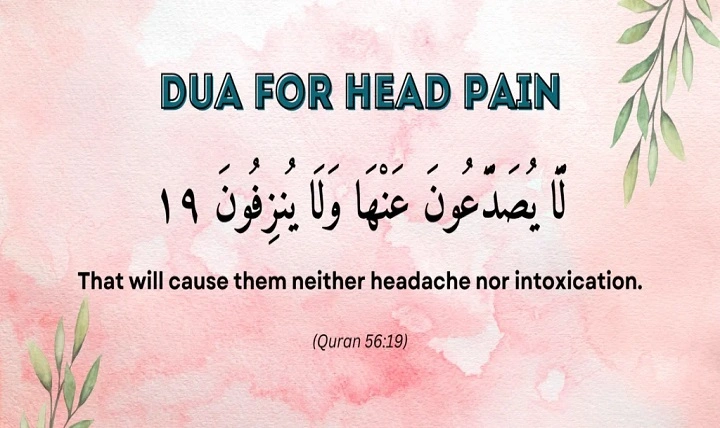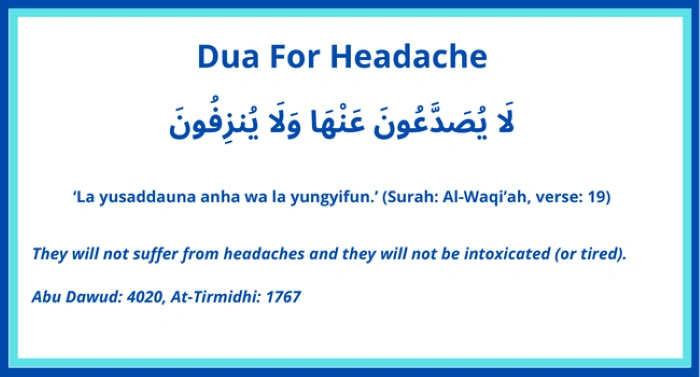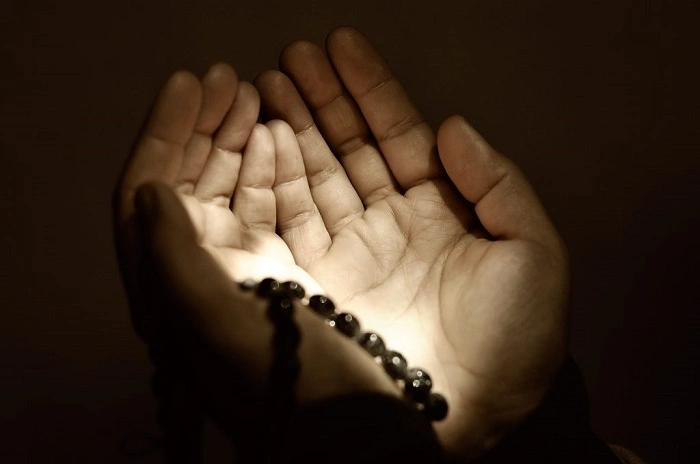Headaches are a common health issue that affect people of all ages, and while medical treatments are often effective, there are also spiritual remedies that many turn to for relief. Among these, the practice of reciting dua for headache is popular among Muslims as a way to seek comfort and healing. In this article, we will explore how prayer can be an effective way to find relief from the discomfort caused by headaches, providing a sense of peace and strength in moments of pain. Additionally, we will guide you through several specific duas that can be recited for headaches, backed by Islamic teachings.
Understanding Headaches in Islamic Context
Headaches, like any illness or pain, are considered tests from Allah (SWT) in Islam. Muslims believe that these physical ailments are a way to purify the soul and are an opportunity for patience and prayer. The Quran and Hadiths suggest various ways to cope with pain, and one of the key spiritual tools for Muslims is dua — supplication to Allah for healing and relief.
In Islam, prayer is not just a ritual but a way to connect with the Divine, seeking comfort and solutions through faith. When facing a headache, many people find solace in reciting specific duas, asking for Allah’s mercy and intervention in relieving their pain.
The Power of Dua for Healing
Dua, or supplication, has the power to heal when recited with sincerity and faith. Islam teaches that no matter the type of ailment, physical or emotional, dua can bring relief. Allah (SWT) has promised in the Quran that He will answer the calls of His servants:
“Call upon Me, and I will respond to you.” (Quran 40:60)
This promise assures believers that Allah listens to their prayers and will grant them relief from suffering. The dua for headache works similarly, providing a sense of peace and hope while simultaneously seeking divine healing.
Powerful Duas for Headache Relief
Several duas are commonly recited for seeking healing and relief from headaches. These prayers invoke Allah’s name and His power, asking for the alleviation of suffering.
Dua for Healing (Shifa)
One of the most powerful duas for any form of illness, including headaches, is the Dua for Shifa (healing). This dua is widely recited for health problems and is believed to bring comfort.
Recite:
“Allahumma Rabban-nas, adhhibi al-ba’s, ishfi anta al-shafi, la shifa’a illa shifa’uk, shifa’an la yughadiru saqama.”
(O Allah, Lord of mankind, remove the affliction and heal, You are the Healer, and there is no healing except Your healing, a healing that leaves no trace of illness.)
This dua, when recited with sincerity, invokes Allah’s mercy for complete healing and protection from further ailments.
Dua for Pain Relief
Another dua for headache relief is a short prayer specifically asking Allah to remove the pain. It can be recited during times of discomfort to ease the symptoms.
Recite:
“Bismillah illazi la yadurru ma’asmihi shay’un fi al-ardi wa la fi as-sama’i wa huwa as-sami’ al-‘alim.”
(In the name of Allah, with Whose name nothing can harm in the earth or in the heavens, and He is the All-Hearing, the All-Knowing.)
This powerful dua is often recited to protect oneself from harm and to seek immediate relief from physical pain, including headaches.
Dua for Relief from Severe Pain
For more intense headaches or migraines, a longer dua may be recited. This supplication requests Allah’s mercy to alleviate the severity of the pain.
Recite:
“Allahumma inni a’udhu bika min sharri kulli dhatin, wa min sharri ma yaji’u ilayhi al-nasi wa a’udhu bika min sharri al-hummati wal hammi.”
(O Allah, I seek refuge in You from the evil of every being, from the evil that approaches people, and from the evil of worry and sorrow.)
This dua not only seeks relief from the headache itself but also asks for protection from further afflictions.
How to Maximize the Effectiveness of Dua
While reciting dua is a powerful spiritual tool, there are several additional practices in Islam that can enhance its effectiveness. These include:
Sincerity in Prayer
For any dua to be effective, it must be recited with sincerity and belief. The heart must be filled with trust in Allah’s mercy, and the person reciting the dua must genuinely believe in Allah’s ability to heal and protect.
Regular Recitation
Repeating the dua regularly, especially during moments of intense pain, can help reinforce the connection with Allah. Regular supplication is a sign of devotion and trust in Allah’s power.
Seeking Forgiveness
Before reciting the dua for healing, it is beneficial to ask for forgiveness (Istighfar). The Prophet Muhammad (PBUH) mentioned that seeking forgiveness brings relief from all difficulties. Reciting “Astaghfirullaha Rabbi min kulli dhambin wa atubu ilayh” can be a good way to prepare the heart for the supplication.
Praying with Conviction
In Islam, prayers are not just ritualistic; they are an emotional plea for Allah’s mercy. The stronger the faith in the prayer, the more likely it is to be answered.
Repenting and Reflecting on One’s Deeds
Reflecting on one’s deeds and striving to improve is a way to strengthen the spiritual connection with Allah. Often, physical ailments like headaches can be seen as reminders to turn back to Allah, purify one’s soul, and seek forgiveness for any misdeeds.
Islamic Perspective on Healing and Patience
Islam teaches that illness and pain are not just punishments, but opportunities for spiritual growth. Reciting dua for headache and other forms of supplication allow Muslims to find comfort during these moments and grow closer to Allah. The Prophet Muhammad (PBUH) reminded us:
“When a believer is afflicted with a trial or test, it is expiation for his sins.”
(Sahih Muslim)
This perspective helps believers cope with pain and suffering by seeing it as a means of purification. Through patience, prayer, and reflection, the pain becomes a path toward spiritual growth.
In times of physical discomfort like headaches, reciting dua for headache provides a means of both physical and emotional relief. These duas serve as reminders of the power and mercy of Allah, offering believers a way to seek healing and comfort. Whether recited individually or as part of a regular prayer routine, these supplications provide both physical and spiritual solace. Always remember that with sincerity and faith, Allah listens to the calls of His servants and responds in ways that are best for them.
Frequently Asked Questions
Can reciting dua for headache help with migraines?
Yes, reciting dua for headache with sincerity and faith can help alleviate the symptoms of migraines and other severe headaches by invoking Allah’s mercy.
Are there any specific times to recite these duas?
There is no specific time required to recite these duas, but many people choose to recite them during moments of intense pain or as part of their daily prayers.
Can dua for headache be recited in any language?
While it is most effective to recite the dua in Arabic, it can also be recited in any language as long as the meaning is understood and the intention is sincere.
How often should I recite the dua?
It is recommended to recite the dua regularly, especially when feeling the onset of a headache or during periods of stress and discomfort.
Is there any other Islamic remedy for headaches?
In addition to dua, using Ruqqyah (spiritual healing) and seeking medical treatment as needed are also recommended in Islam for healing from physical ailments.



